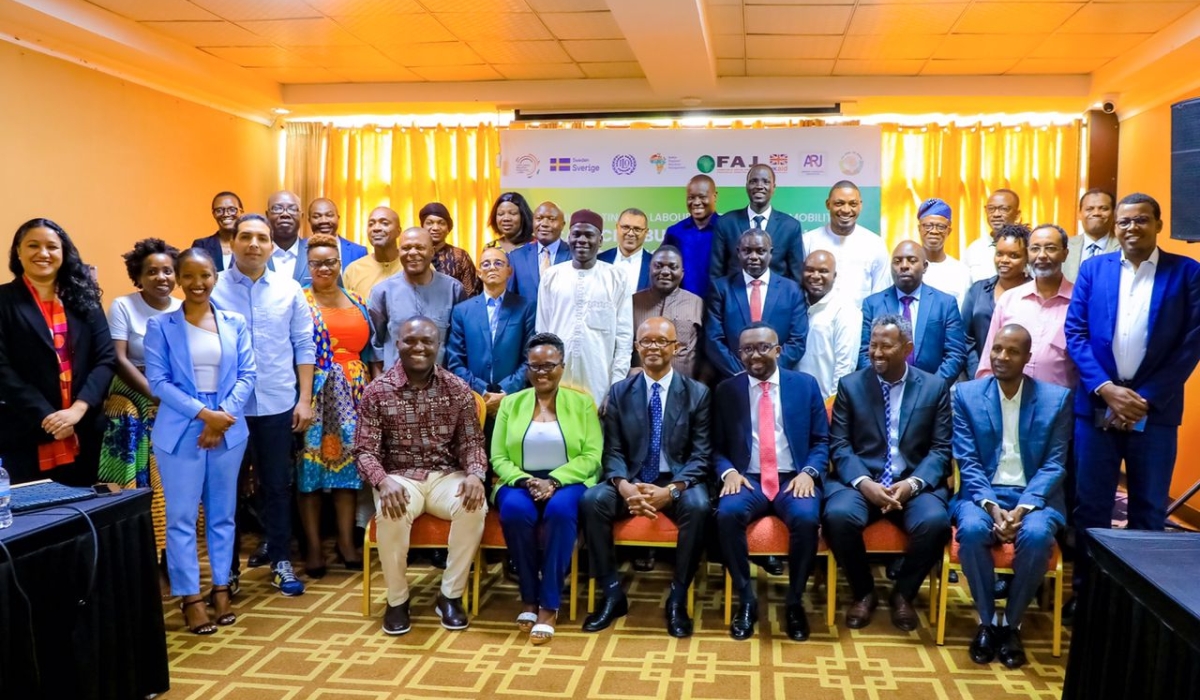
African media are encouraged to report on labor migration in a more effective manner
African journalists have been encouraged to strive to illuminate the obstacles encountered by African migrant laborers, particularly those in the Gulf region, while simultaneously advocating for narratives that are grounded in justice and dignity.
In collaboration with the International Labor Organization (ILO), the Rwanda Journalists Association (ARJ), and other partners, the Federation of African Journalists (FAJ) convened a capacity-building training for African media professionals during which the call was made.
Journalists are to be provided with the knowledge, skills, and ethical principles necessary to report on labor migration and mobility through the training, which commenced in Kigali on January 15 and is scheduled to conclude on January 17.
The president of the Federation of African Journalists, Omar Faruk Osman, underscored the critical significance of addressing migration issues, particularly labor migration, for Africa.
While advocating for narratives that are grounded in dignity and justice, he underscored the media’s obligation to shed light on the obstacles encountered by migrant laborers, particularly those in the Gulf region.
“Labor migration is a matter of public interest because it affects our people. He stated that journalists must evaluate the way in which governments implement domestic laws, ratify ILO conventions, and hold recruitment agencies accountable for exploiting our siblings and sisters.
In addition, Osman encouraged journalists to advocate for enhanced government safeguards for migrant laborers and to expose human trafficking networks.
Media Policy Analyst at the Ministry of Local Government, Peacemaker Mbungiramihigo, emphasized the media’s ability to influence policies that support the rights of migrant workers, facilitate dialogue, and shape public perception.
“You are at the forefront of challenging misconceptions, demonstrating the positive contributions of migrant workers, and advocating for their rights. “You can alter the narrative and foster a more profound comprehension of migration, not as a problem, but as a fundamental component of our global society, through ethical and precise reporting,” he stated.
According to Ephrem Getnet, Chief Technical Advisor at the ILO, journalists are “agents of change” who are encouraged to confront negative migration narratives.
Public opinion, policy, and practice can be influenced by reporting on the experiences of migrant laborers, their contributions, and their challenges. He observed, “You possess the capacity to transform the narrative from one of fear and hostility to one of empathy, solidarity, and human rights.”
He encouraged attendees to amplify the perspectives of vulnerable migrant workers, counter misinformation with ethical reporting, and fortify cross-border collaboration in order to reshape migration narratives.
According to Oche, journalists are unable to produce dependable reports that can facilitate secure and orderly migration due to the absence of accurate information and transparency from governments. Additionally, financial constraints serve as a deterrent.
Even in the face of these obstacles, Oche urged journalists to take proactive measures to enhance their abilities. “In addition to the significance of organizational support, it is imperative that we capitalize on the resources at our disposal, including online platforms, to enhance our abilities. We are not required to await external funding in order to develop professionally, he further stated.
All Categories
Recent Posts
Tags
+13162306000
zoneyetu@yahoo.com



